“I see my artistic practice as a form of contesting power and censorship, yet also reflecting on what it means to create – and publish – as a Chinese artist within a highly charged sociopolitical environment. I am in pursuit of a method against disciplinary dictatorship as a citizen who wants to be engaged. My artistic practice works as a mode of engagement. In this way, I embrace fragmentation as a method in my practice, that can defy totalitarian censorship as much as it can live on as a beckon of resistance.” – Yujie Zhou
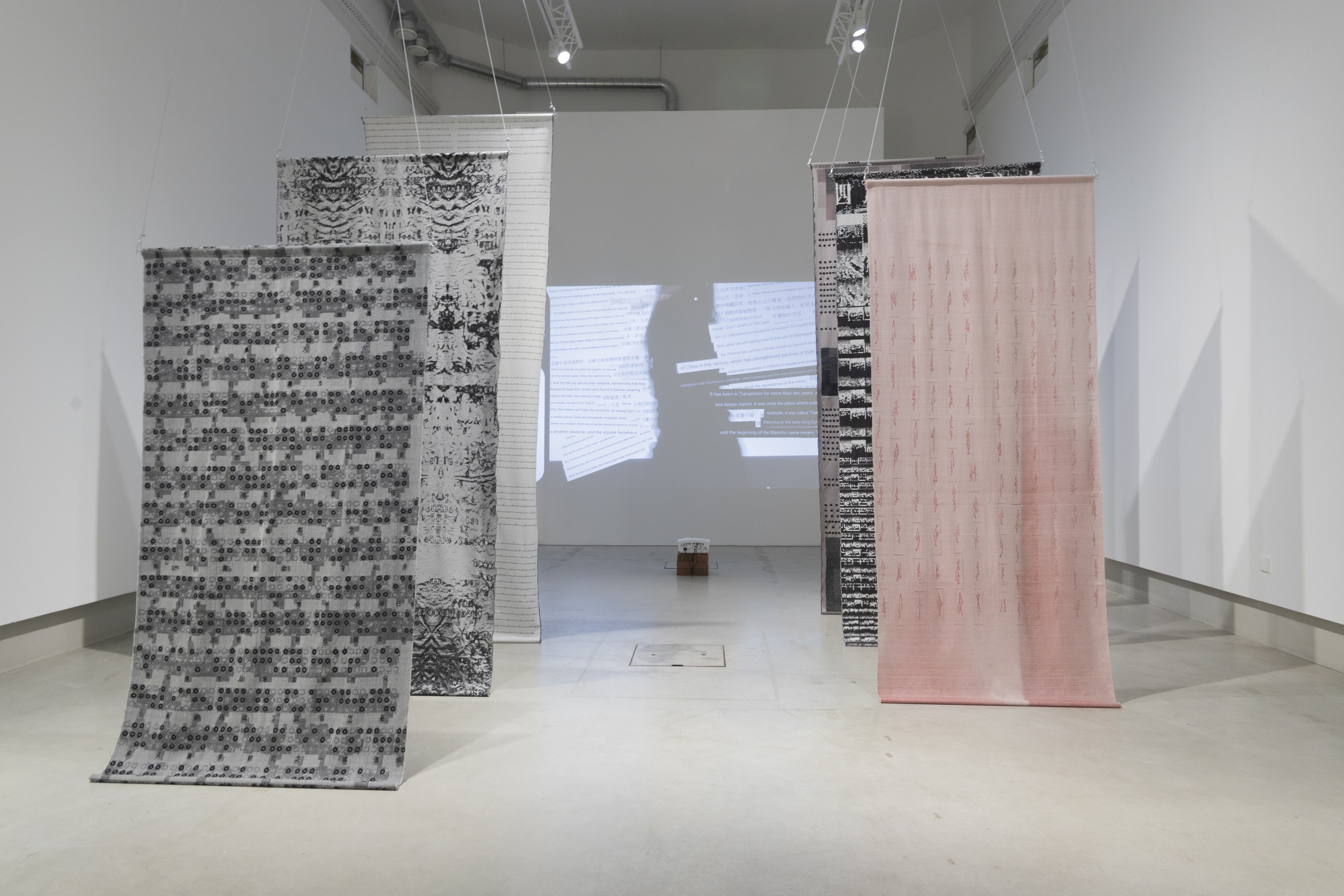
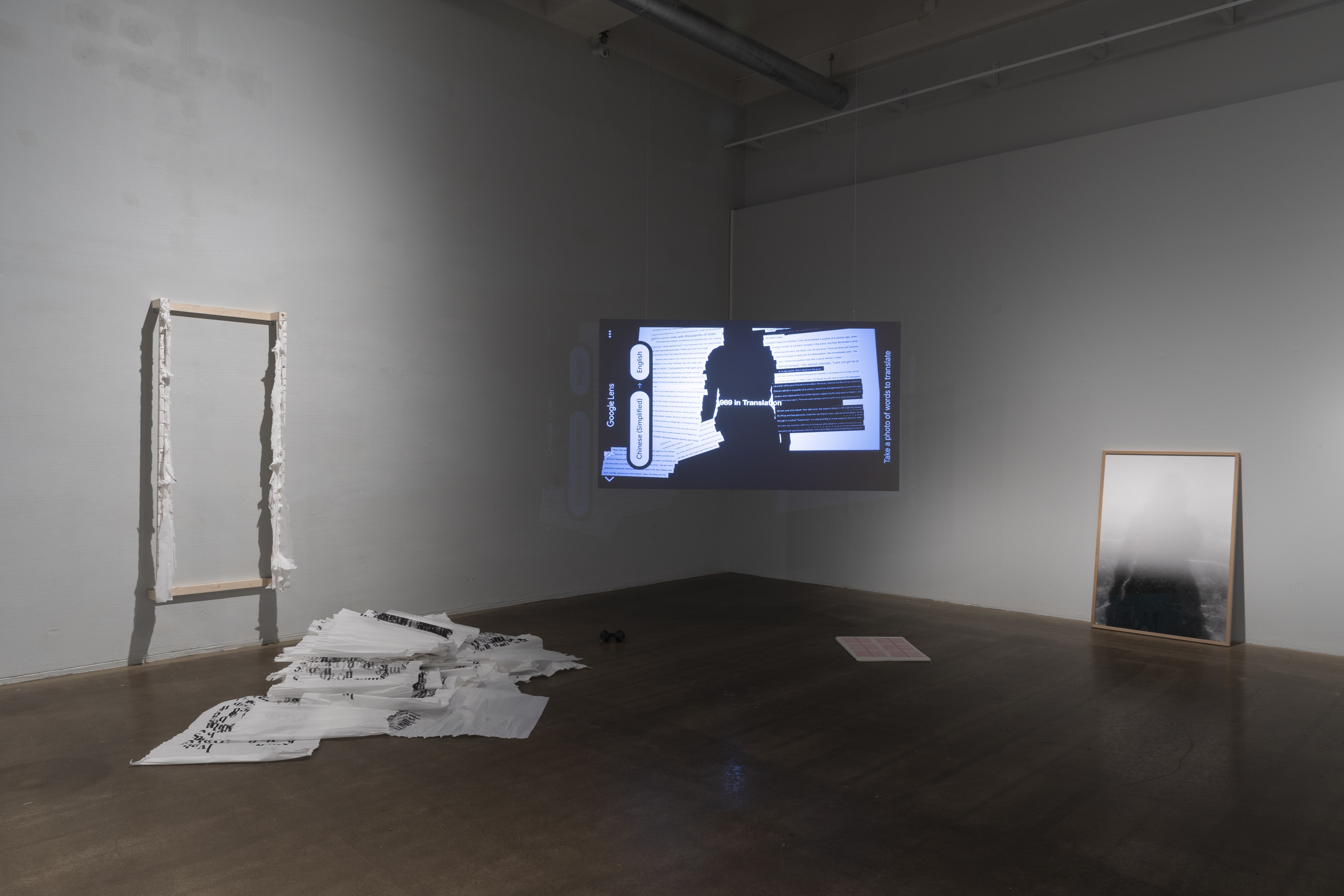
In 2021, Zhou began the project series Panoptic Segmentation, where she delves into this concept referring to a method of image segmentation, enabling machines to discern and separate objects within an image, breaking down entities into distinct segments in order to unravel and decode the mechanics behind power structures. The objective is to confront the unseen elements and question the intricate relationship between collective political identity and individual experiences. This artistic endeavour, rooted in deconstructing language, seeks to dismantle conventional signifiers and reconstruct meaning.
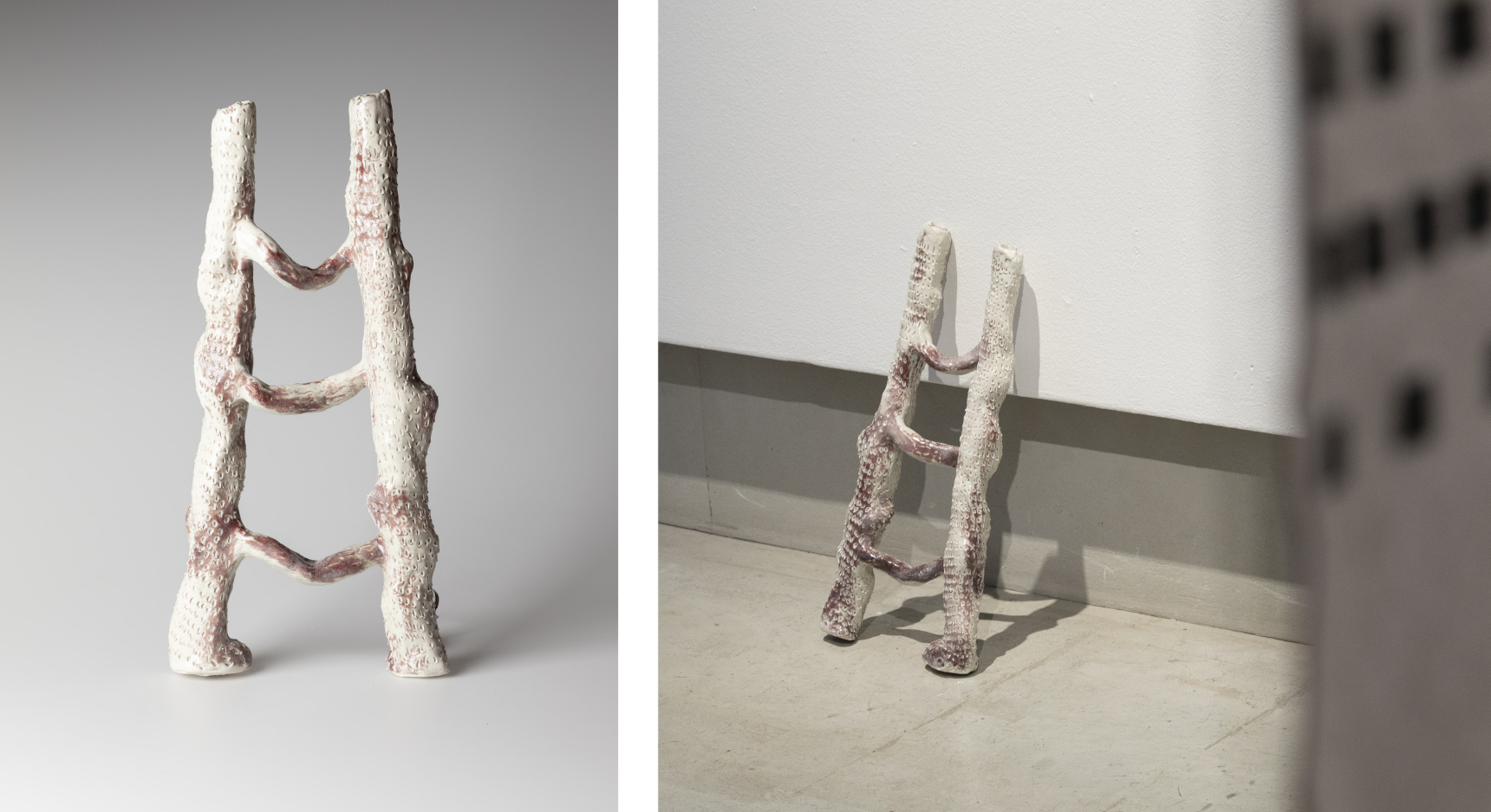
As part of the ongoing project is the work Ladder and Wall stading as a symbolic gap to penetrate the Great Firewall, ascending the ladder with the aid of a VPN (Virtual Private Network).
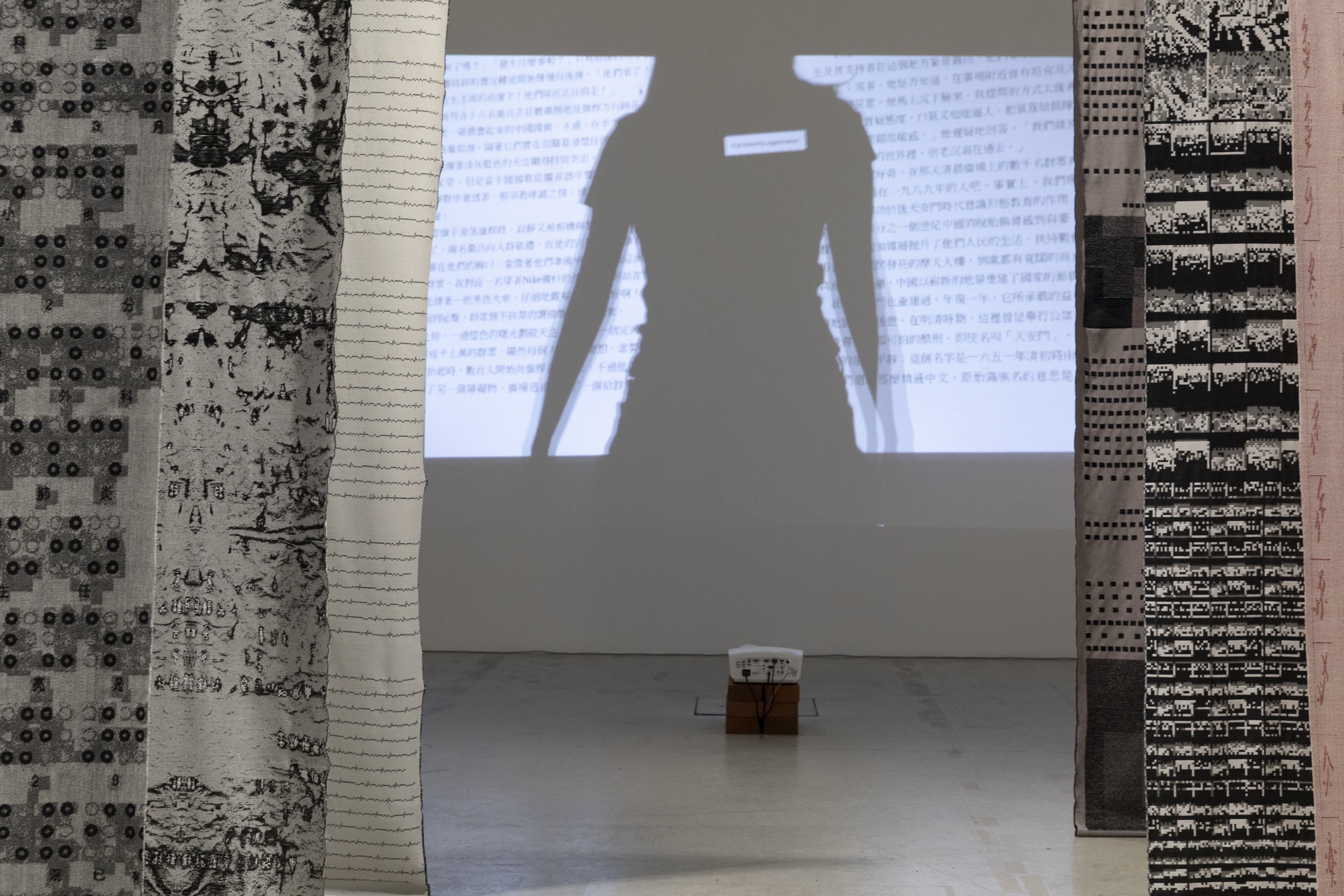
“1989 in Translation marks my first step up a ladder. Here, I walk you through my coming across a chapter in history that my education has be misplaced; Tiananmen Square Protesting. In the video, the text displayed on the wall traces an excerpt from the first book I read about the protest after I began using VPN to bypass the Great Firewall. The audio component of the work featured the sound of Radio Calisthenics, a daily mandatory radio gymnastic exercise for every Chinese student from primary to high school. I performed this exercise in front of Google Lens, while Google Translate generated illegible text blocks in response to my body movements.” – Yujie Zhou
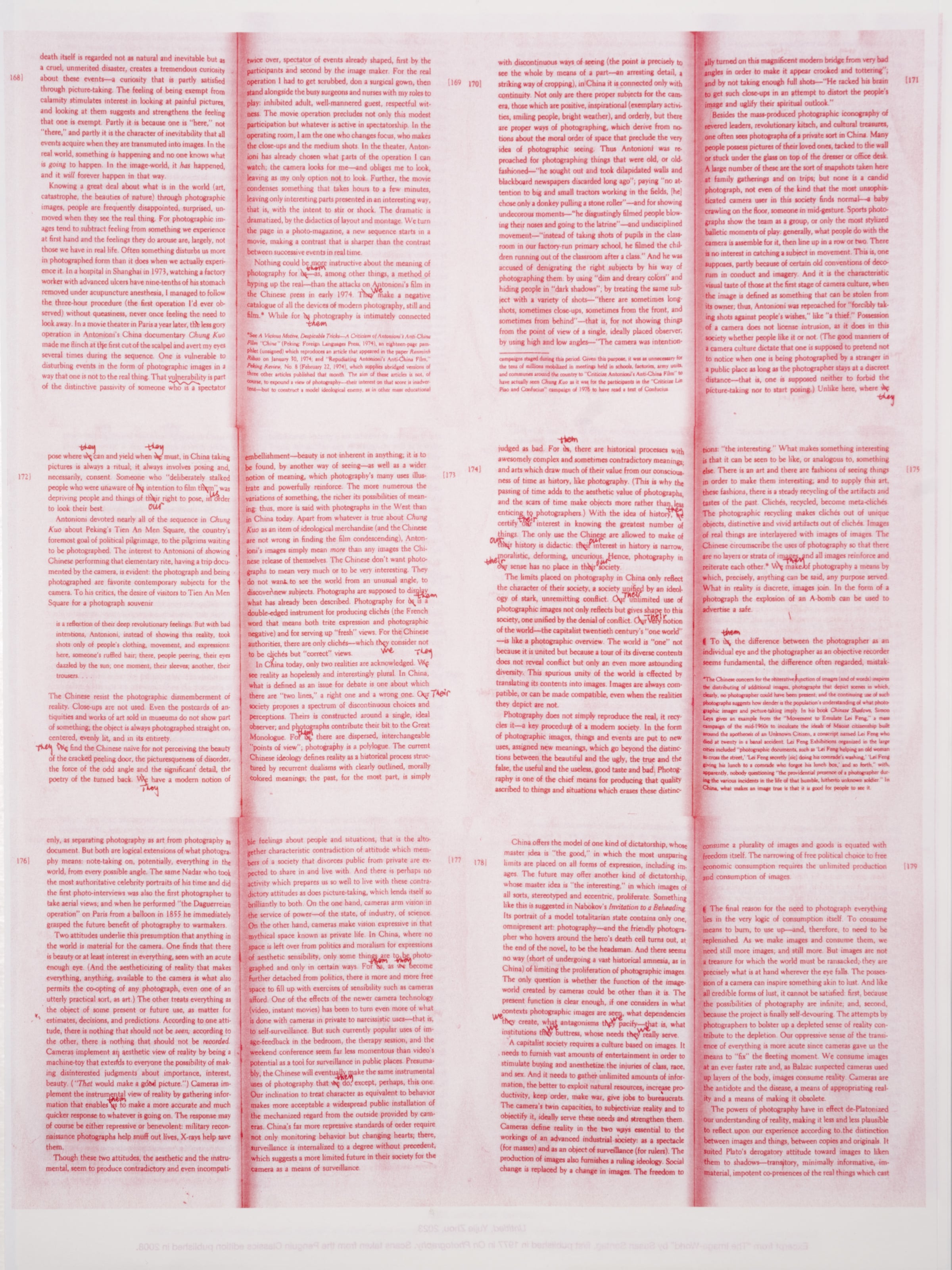
In Us and Them, Zhou reflects on Susan Sontag’s distinction between Chinese and Western photography in the book The Image World, noting the nuanced use of pronouns. As Sontag employs “we,” “us,” and “our” when discussing Western photography and “they,” “them,” and “their” in relation to Chinese photography, Zhou perceives herself as part of the latter category—repeatedly sentenced to not belong under Sontag’s written voice. In essence, Zhou finds herself existing in the in-between, navigating the categorisations of “us” and “them”.
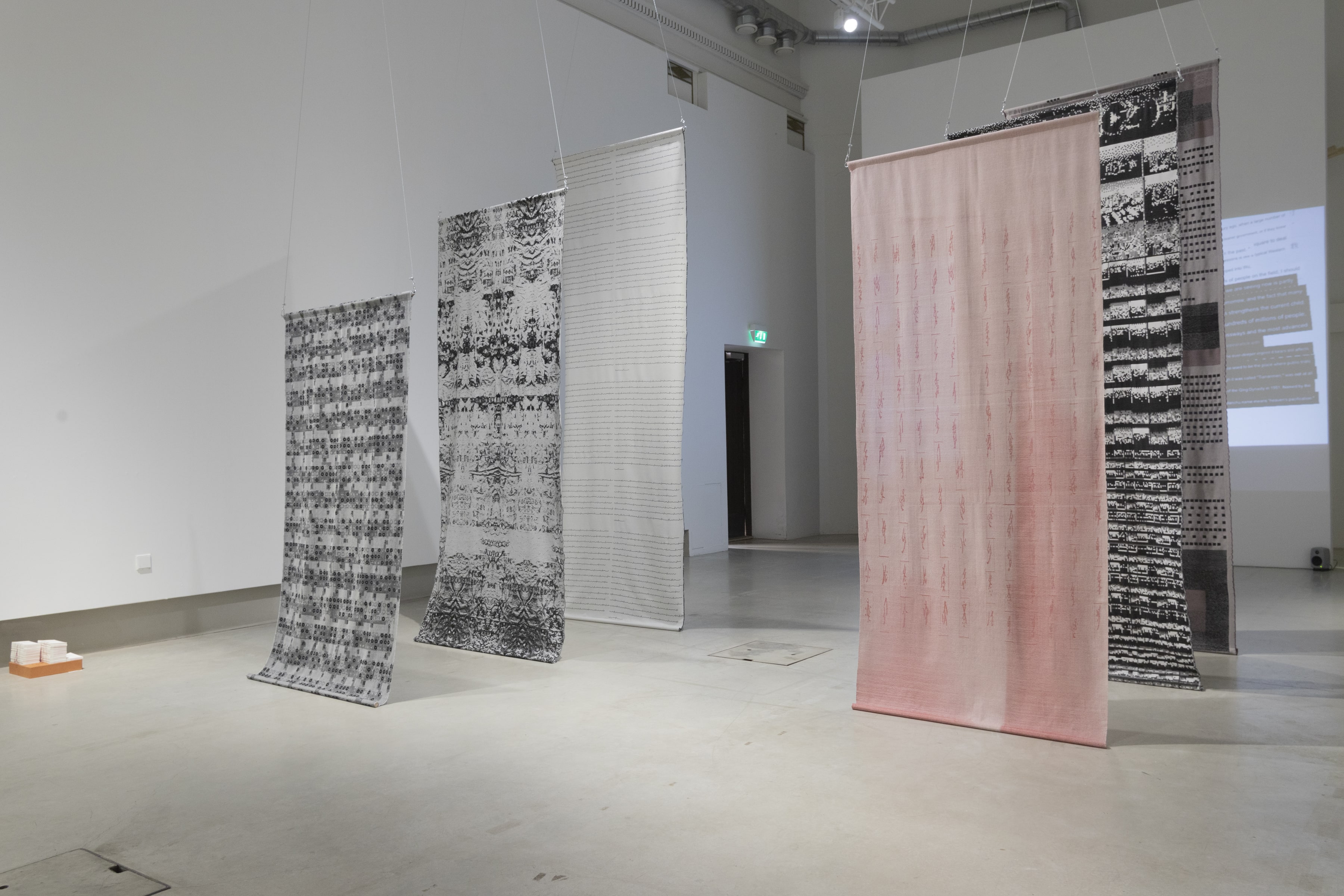
The word “text” finds its origins in Latin words such as “textum” (fiber), “textus” (fabric, material, or texture), and “texere” (weaving), establishing a profound connection to textile and weaving processes. Save as Text employs weaving as a form of writing. Inspired by various methods of translation used by anonymous netizens to make text illegible and evade censorship, weaving becomes a means to rewrite censored texts, giving them a new form that couldn’t exist in their original written state.
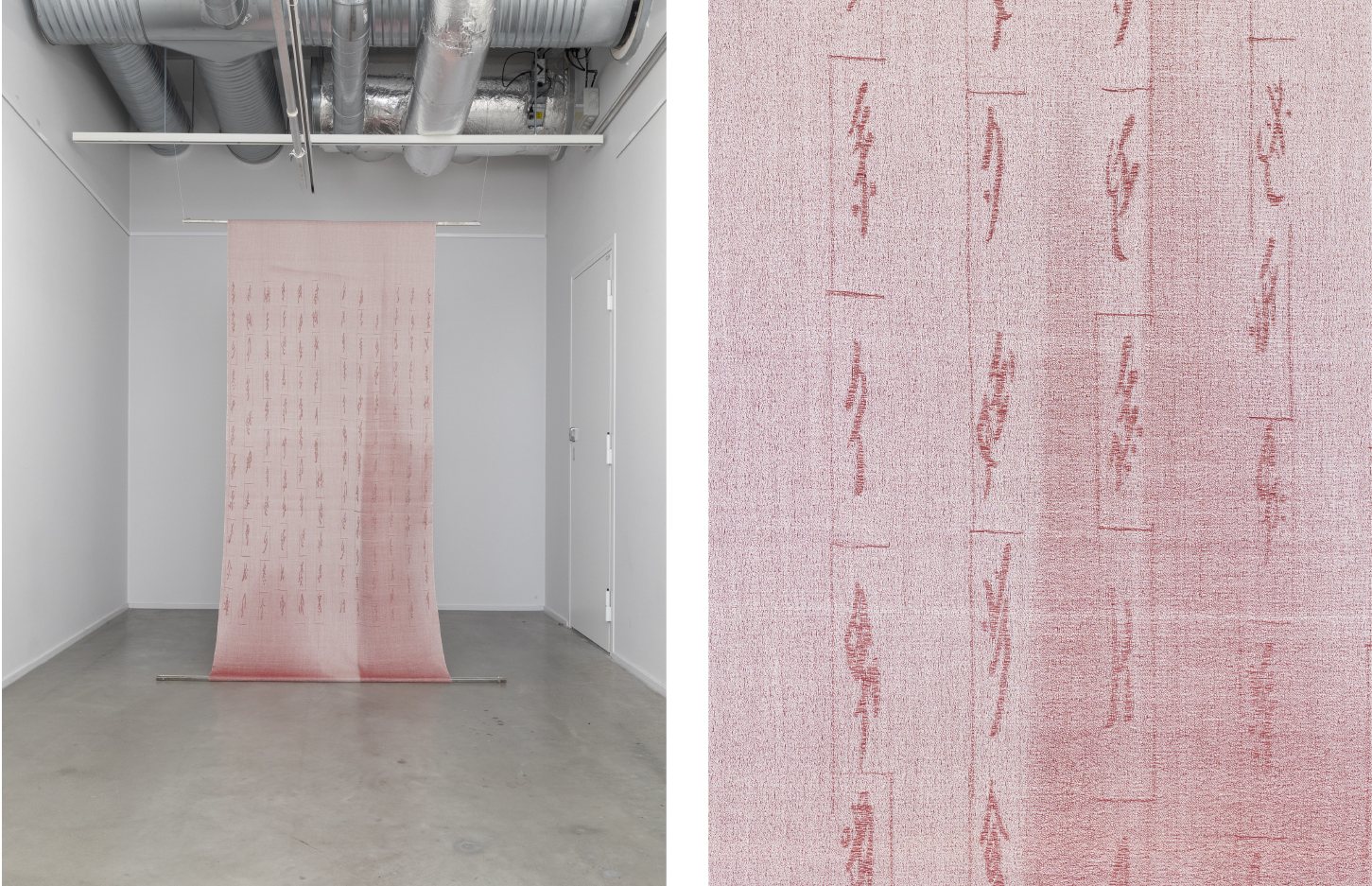
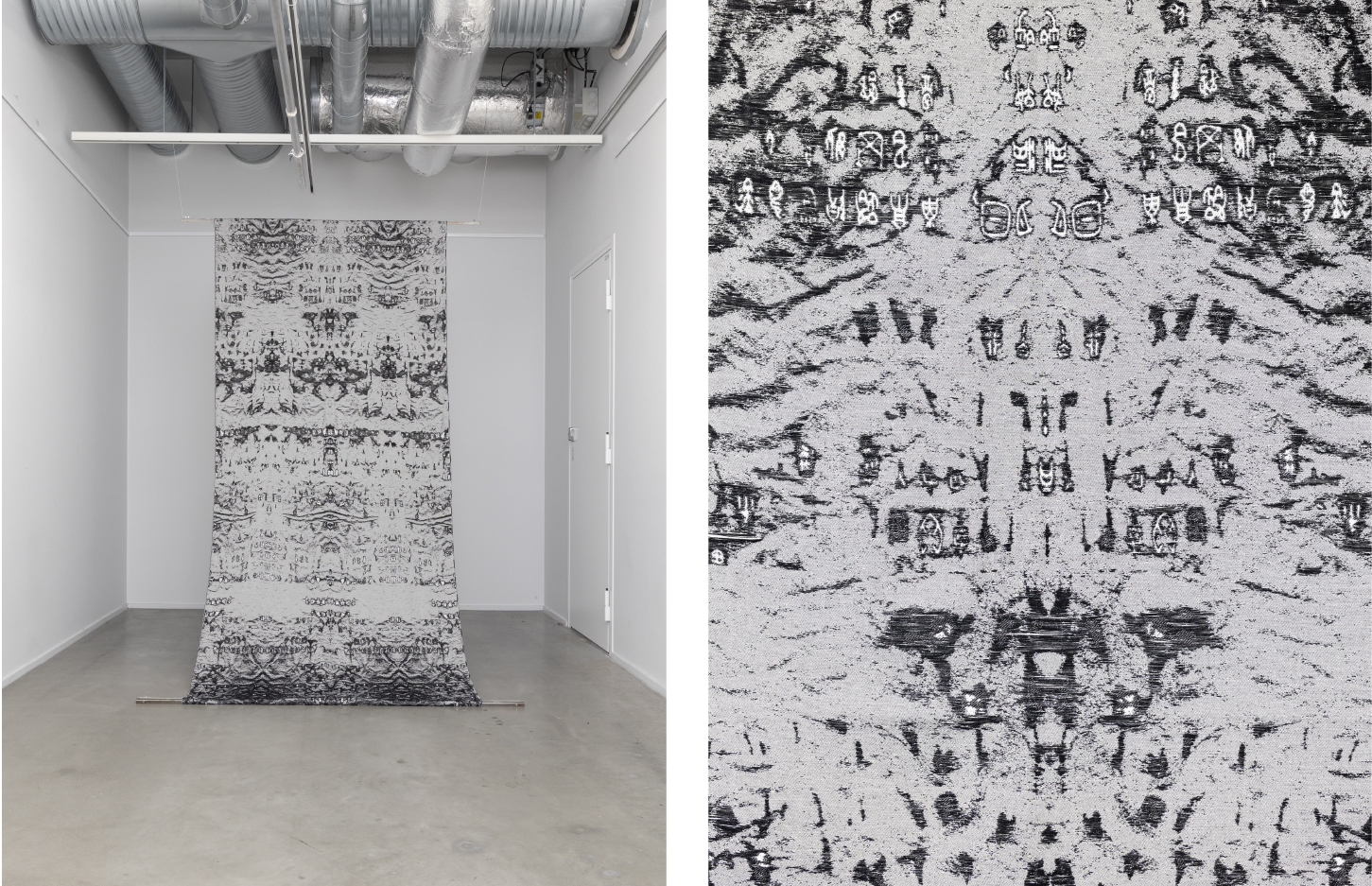
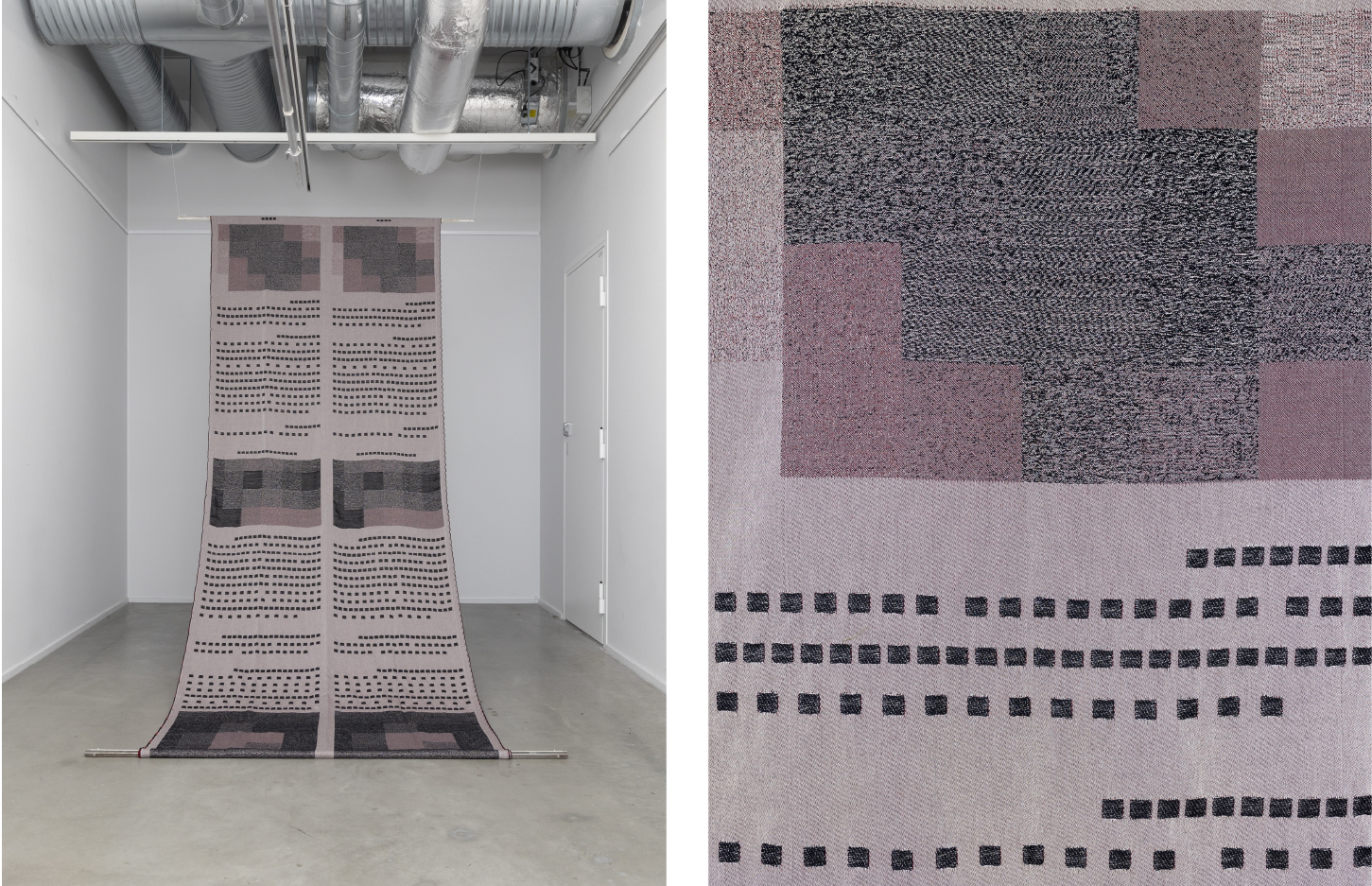
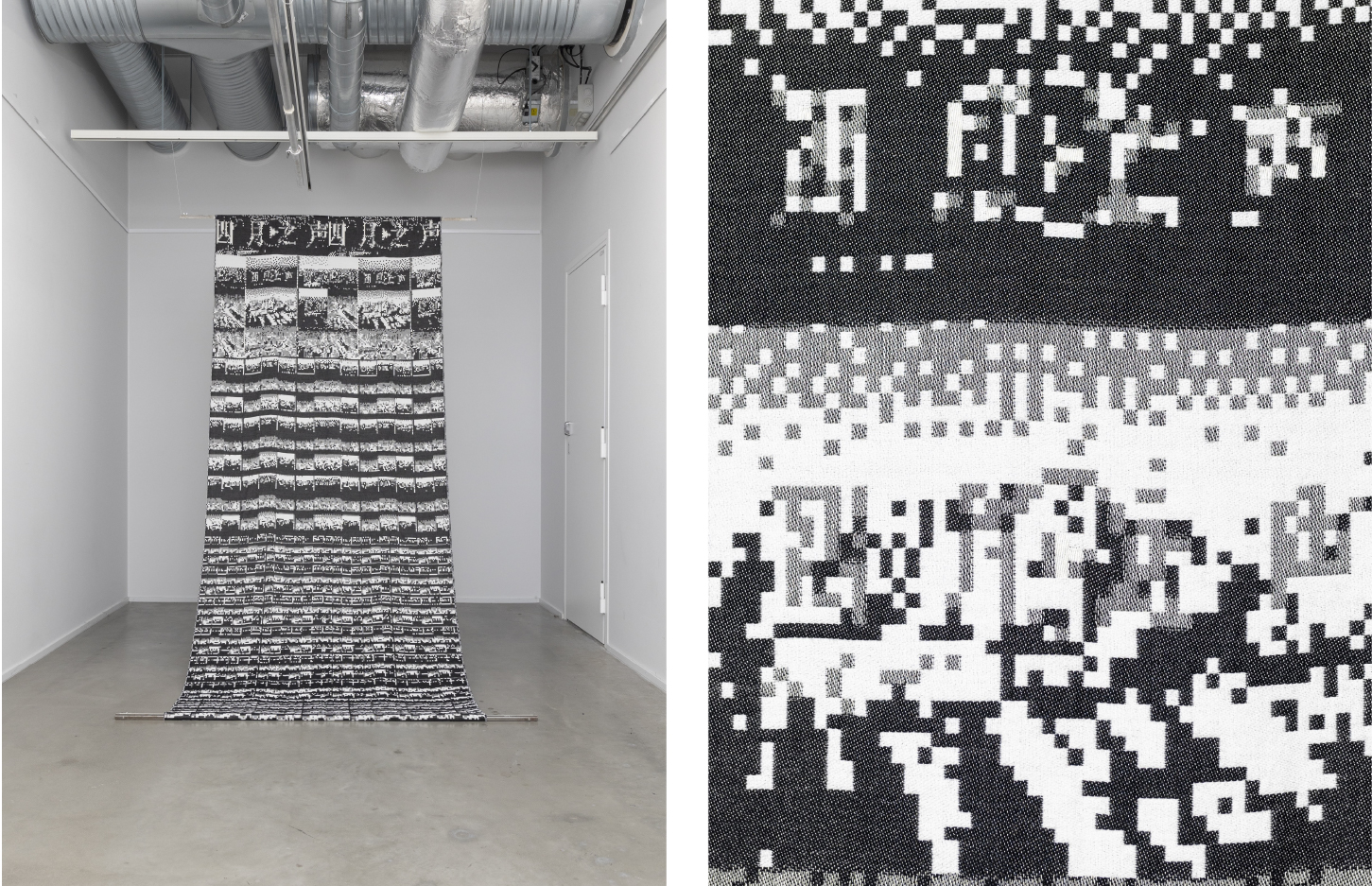
“I hope these objects I have produced, my body of work, can survive the all-encompassing ban. That they can function as those first few bricks we will use to rebuild, that their illegibility can help carry on our message, and serve as evidence. Their existence is a symbol; a symbol of my experience, of our shared experience. What is imperative is to know these exist, to acknowledge something happened and shall not be forgotten; that, even if in silence, there was resistance.” – Yujie Zhou
Yujie Zhou
Born in 1997 in Chengdu, China.
Currently lives and works in Helsinki, Finland.
16.12.2023
Yujie Zhou is a versatile artist who engages with a variety of mediums, including expanded photography, textile works, moving images, installation, and publishing. By incorporating performativity and a deconstructed understanding of language into her work, Zhou aims to question prevailing historical narratives and power dynamics, all while reshaping our perception of collective individuality.